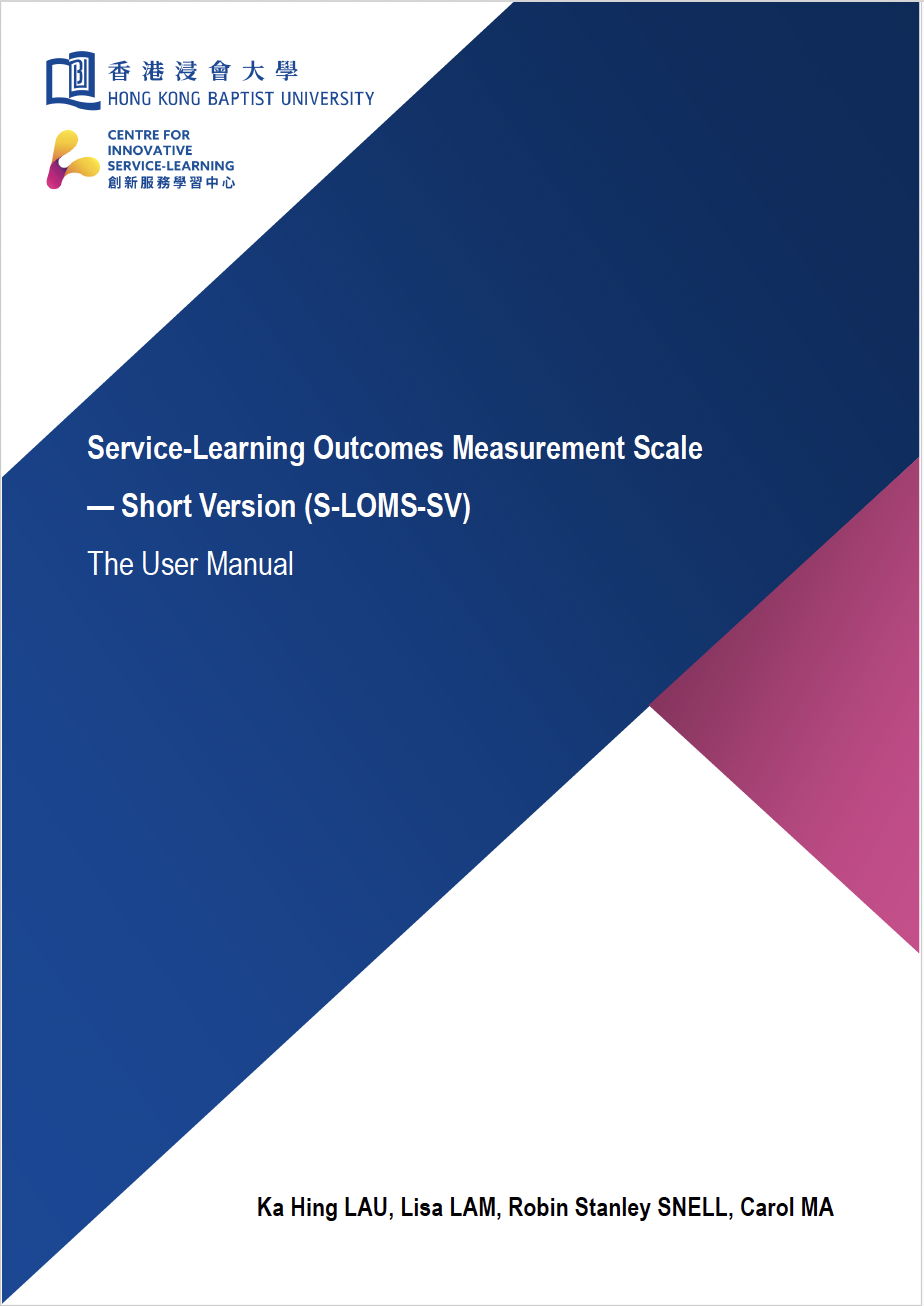Evaluation
Introduction
The Centre for Innovative Service-Learning (CISL) is dedicated to fostering meaningful learning experiences that align with HKBU's mission of Whole Person Development. To achieve this, CISL continuously evaluates its service-learning courses and student developmental outcomes to ensure they meet the highest standards of quality and impact. This robust evaluation process involves multiple stakeholders, including students, faculty, and community partners, assessing not only the academic and personal growth of students but also the effectiveness of service-learning courses in addressing community needs.
Central to this evaluation is the Service-Learning Outcomes Measurement Scale – Short Version (S-LOMS-SV), a validated and evidence-based tool that provides critical insights into student development. By utilising S-LOMS-SV, CISL is able to inform refinements in course design and teaching methods, ensuring that learning activities are tailored to meet student needs and aspirations. CISL welcomes collaboration from other universities for benchmarking purposes or to adopt the S-LOMS-SV in their own evaluations. Through these partnerships, CISL aims to create transformative learning opportunities that empower students to become socially responsible leaders while contributing to sustainable community development. Interested parties can contact us at cisl@hkbu.edu.hk.
Through this ongoing cycle of evaluation and enhancement, CISL strives to deliver high-quality service-learning experiences that empower students to grow as socially responsible leaders while making meaningful contributions to society.
Evaluation of Student Outcomes
CISL employs a comprehensive evaluation framework to assess the effectiveness of its service-learning courses and their impact on students' development. The approach combines quantitative and qualitative methods to gain a holistic understanding of student outcomes and experiences, ensuring a robust evaluation process that not only measures outcomes but also informs continuous improvement of its service-learning courses. This framework allows CISL to better understand students’ needs and aspirations while enhancing the overall quality and impact of its programs.
1. S-LOMS-SV
The Service-Learning Outcomes Measurement Scale – Short Version (S-LOMS-SV) is a concise evaluation tool developed to measure the developmental outcomes of students engaged in service-learning. CISL collaborated with the Hang Seng University of Hong Kong, The Singapore University of Social Sciences, and expert scholars to publish the S-LOMS-SV in 2023, serving as a concise alternative to the original 56-item S-LOMS launched in 2019. This shortened version comprises 21-items that maintain the psychometric rigor validated using historical and contemporary data.
The S-LOMS-SV evaluates student growth across four overarching categories
Knowledge Application: Measures the ability to apply classroom knowledge to real-world problems.
Personal and Professional Skills: Assesses soft skills such as problem-solving, leadership, and adaptability.
Civic Orientation and Engagement: Evaluates social responsibility and community involvement.
Self-Awareness: Focuses on understanding personal strengths, weaknesses, and values.
This tool uses a pretest-posttest design to track changes in students’ perceptions before and after service-learning activities. Its flexibility allows educators to adapt it for various contexts while maintaining its reliability and validity. The S-LOMS-SV is available in English and Chinese, making it accessible for diverse educational settings.
Links to Publications:
2. Focus Group Interviews
To complement the quantitative insights gained from the Service-Learning Outcomes Measurement Scale – Short Version (S-LOMS-SV), CISL conducts focus group interviews with students. These sessions are designed to uncover thematic elements relevant to the four overarching categories of the S-LOMS-SV, providing valuable context for understanding student growth.
During these focus groups, students have the opportunity to share their experiences, challenges, and reflections in their own words. This qualitative approach captures nuanced feedback that may not be evident through surveys alone, allowing CISL to identify specific areas for improvement and better understand the impact of service-learning on student development. By integrating these insights with quantitative data, CISL enhances its ability to refine course design and teaching methods, ultimately fostering a more effective learning environment.
